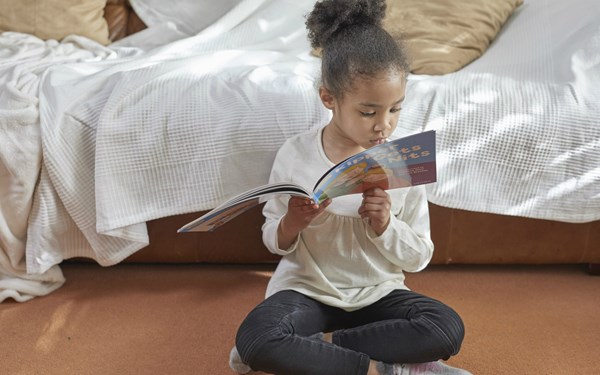Last Updated on June 30, 2022
A mother’s love is said to be unending and unselfish. So, what rights does a mother have in a separation? Unfortunately, not all mothers are able to experience this love.
Some are faced with the heart-wrenching decision to separate from the father of their child. This can be an emotionally and mentally draining time for any mother. The thought of not being able to see or care for your child on a daily basis can be devastating.
The process of separation can also be financially draining. Lawyers, court fees, and child support can add up quickly.
A mother’s rights in a separation are often misunderstood. While it is true that fathers have certain legal rights, mothers are not left completely out in the cold. In fact, mothers have several important rights that they should be aware of.
For starters, mothers have the right to child support. If the father is not providing adequate support, the mother can take him to court to have a child support order issued. Additionally, mothers have the right to visitation with their children.
Even if the father has primary custody, the mother should be able to work out a visitation schedule that works for both parties. Another important right mothers have is the right to information about their children. This includes the right to know about their child’s medical care, education, and general welfare.
Mothers should also be kept up-to-date on any legal proceedings involving their children, such as custody hearings. Lastly, mothers have the right to be treated with respect by their children’s fathers. This includes being treated with respect during visitation and being included in decisions about their children’s lives.
While it is true that fathers have certain legal rights in separation, mothers are not left completely out in the cold. Mothers have several important rights that they should be aware of, including the right to child support, visitation, and information about their children. If you are a mother going through a separation, make sure you are aware of your rights so that you can protect yourself and your children.
Mothers’ rights vs fathers’ rights
The debate over mothers’ rights versus fathers’ rights is one that has been around for centuries. In recent years, however, the debate has taken on a new urgency as more and more mothers find themselves in the workforce and more fathers take on a greater role in child-rearing. There is no question that mothers have a unique and important role to play in the lives of their children.
They are the ones who carry and birth the child, and they are typically the primary caretakers in the early years. But does this mean that mothers should have sole custody of their children in the event of a divorce? Fathers, too, have a vital role to play in their children’s lives.
They provide financial support, emotional stability, and a male role model. In some cases, fathers are better equipped to provide a stable home environment than mothers. So who should have custody of the children in the event of a divorce?
The answer is not clear-cut. In many cases, it is in the best interest of the children to have joint custody, with both parents sharing the responsibilities of parenting. However, there are some situations in which one parent may be better suited to take on primary custody.
The best interests of the child should always be the guiding principle in any custody decision. Joint custody arrangements can be difficult to navigate, but they are often in the best interest of the child.

Credit: www.nspcc.org.uk
What are a mother’s rights when separating the UK?
If you are a mother going through a separation, you may be wondering what your rights are. This is a difficult and often emotional time, so it is important to be informed about your legal rights and options. In the UK, there is no such thing as a “common-law wife”.
This means that if you are not married to the father of your child, you do not have the same legal rights as a married mother. However, you may still have certain rights under the law. If you are living with the father of your child, you may have what is known as “occupation rights”.
This means that you have the right to live in the family home, even if you are not the legal owner. However, you may only have these rights if you are named on the tenancy agreement or mortgage. If you are not living with the father of your child, you may still be entitled to child maintenance payments.
These are payments that the father makes to help cover the costs of raising the child. The amount of child maintenance will depend on a number of factors, such as the father’s income and the number of children he has. If you are going through a separation, it is important to get legal advice.
This is because the law can be complex and confusing, and it is important to get advice that is specific to your situation.
What are the rights of the mother?
A mother’s rights are those legal rights that a mother has in relation to her child. They vary from country to country, but in general, they include the right to: – Give birth to and raise her child
– Be recognized as the legal mother of her child – Have custody of her child – Have access to her child
Do mothers have more rights than fathers UK?
In the UK, there is no legal difference between the rights of mothers and fathers. Both parents have the same legal rights and responsibilities toward their children. This includes the right to spend time with their children, the responsibility to financially support their children, and the right to make decisions about their children’s upbringing.
There is, however, a common perception that mothers have more rights than fathers. This is often because mothers are typically the primary carer for their children, and so they are more likely to be the ones who make decisions about their children’s lives. Fathers, on the other hand, are often seen as being less involved in their children’s lives and so are perceived to have less power and authority.
This perception is not always accurate, and there are many fathers who are very involved in their children’s lives and who have equal rights to their mothers. However, it is still a common perception and one that can often result in fathers feeling like they are at a disadvantage.
What happens to the child when parents separate?
Assuming the parents are separating amicably, the child will likely feel some sadness and confusion. They may feel like they are losing one of their parents, and may not understand why the separation is happening. If the child is older, they may be able to understand the reasons for the separation and may be able to better cope with the situation.
If the parents are not separating amicably, the child may witness fights and arguments which can be very upsetting. The child may feel like they are caught in the middle and may feel torn between the two parents. Ultimately, it is important for the parents to try to put their differences aside and work together for the sake of the child.
What Are My Rights As A Mother After Separation – Justice Family Lawyers Australia
Conclusion
A mother’s rights in a separation depend on several factors, including the type of separation, the state in which the separation occurs, and the relationship between the parents. In some separations, the mother may have primary custody of the children, while in others, the father may have primary custody. The mother’s rights also vary depending on whether the separation is temporary or permanent.

